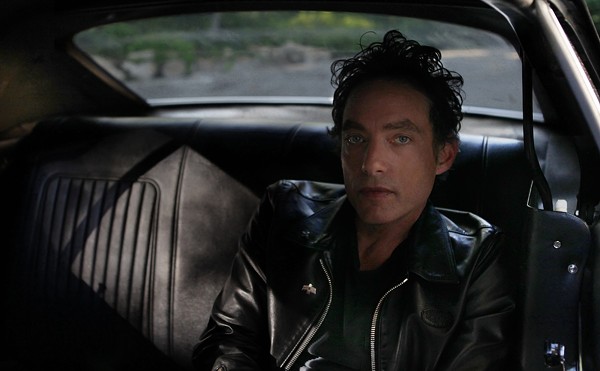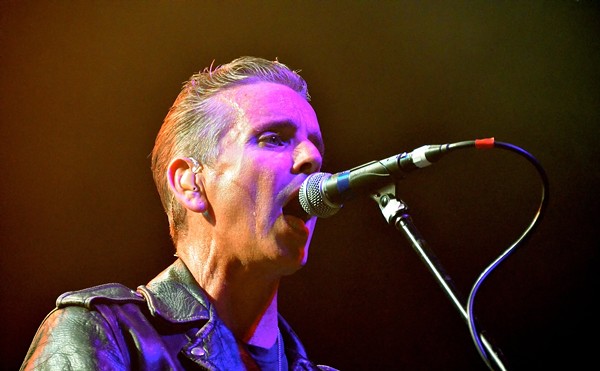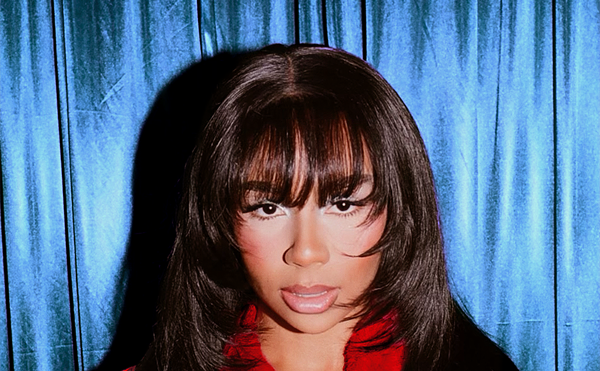Madonna is important.
Not in the way that Nobel laureates are important (or even in the way that college basketball coaches are important). But more to the point, Madonna is (was?) the river from which the Holy Water of Pop Imagery flows (flowed?). That she's embarking on a dedicated voyage back to the top of the Billboard charts — considering she already has her rightful place in the pantheon of pop stars — looks like jealousy. More accurately, though, she may just feel her image has been co-opted. Madonna is, by and large, the reason you hear bouncy, bubbly synths on nearly every smash radio hit, and she's also the reason most megastars are just as meticulously attentive to their images as they are to their distinctive sounds.
Lady Gaga is the go-to artist for Madonna comparisons, but I think the more accurate comparison is to the innocently sensual Katy Perry, whose voice is more emotive, but whose pop aesthetic parallels that of Madonna's instead of simply imitating it. That isn't to Lady Gaga's discredit, though; she's imitated, but she's also enhanced that same image by bringing it into the 21st century and making it bigger and louder.
On MDNA, Madonna doesn't try to reclaim her image or reestablish her glory; she tries to compete, falling in line with the dominant sonic qualities of typical radio hits from the likes of Rihanna or (egad!) Ke$ha. Straying from the early lyricism of "Like a Virgin" and "Vogue," she retreats into songs like "Gang Bang," "Girl Gone Wild," and "I'm Addicted," which call upon themes of lust and vengeance. "I'm Addicted" even equates the album's title to the street name of a party drug, as if Madonna can date-rape the listener and deposit him or her at one of her latest concerts. (Though I don't know if MDNA is what the kids call it these days.)
At the age of 53, the woman can't be blamed for flaunting all the pent-up sexuality only glancingly visited on her 1992 album Erotica. But the biggest problem with this effusive release of sex-tinged songs is that it all seems so contrived. The hypnotic beats of MDNA are the typical electro-puke with an added element of detachment, so much so that the robotic Madonna narration that shows up in many of the songs seems to be the erstwhile legend's actual cold soul speaking, reminding us of the in-authenticity of the entire record.
Of course, the pop game ain't about truth and soul. Nor should it be, or it wouldn't be as fun and blissful as we all want it to be. But songstresses Adele and Florence Welch have both managed to introduce their own lateral approaches to songwriting while delivering no loss of enthusiasm. Contrary to the size of her biceps, Madonna is tired. There's even an eerie sense that she's aware of this dilemma, when guest vocals appear by Nicki Minaj and the ever-subversive MIA on "Give Me All Your Luvin'" and "I Don't Give A," the introductory Madonna-comeback that debuted in the Super Bowl half-time show.
MDNA feels like the latest evidence of a trend in 21st-century pop: staying power has veritably disappeared. No, the Beatles and the Stones won't be disappearing anytime soon; their contributions to music are ingrained pop paradigms. But Madonna, singing over borrowed beats, may also be performing on borrowed time.
RATING: 2 and 1/2 Stars
Follow this author on Twitter


















